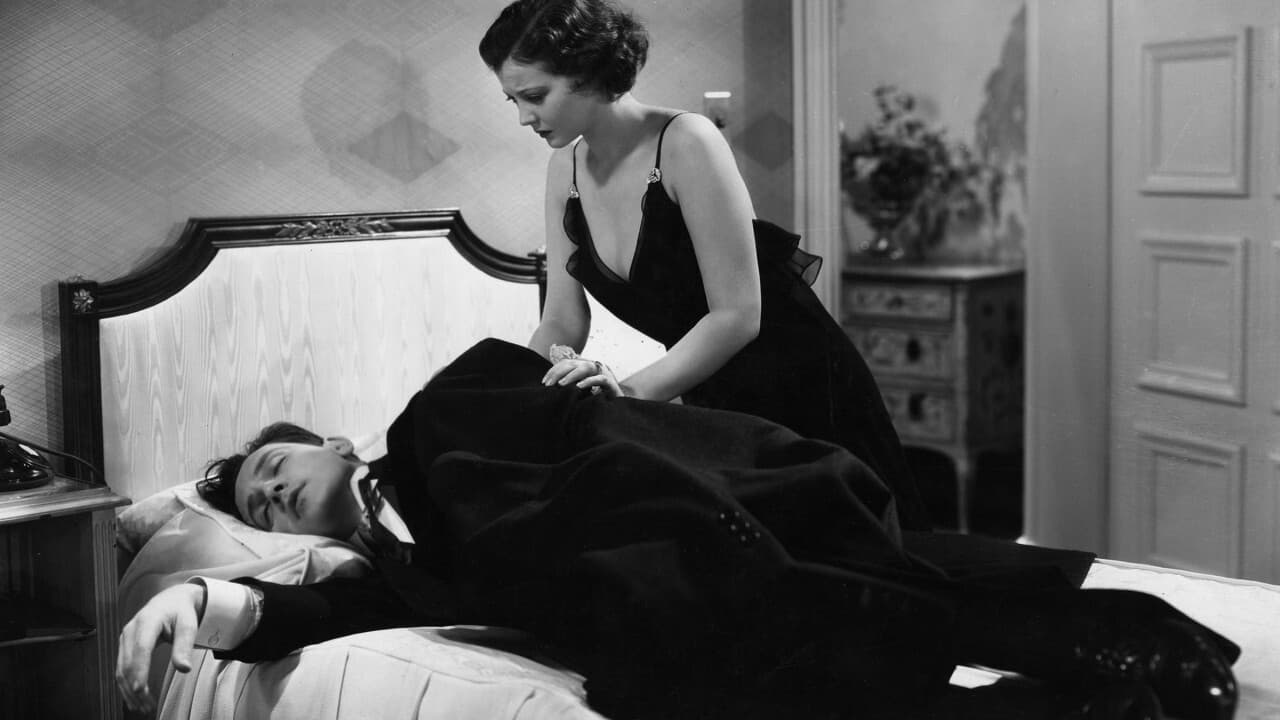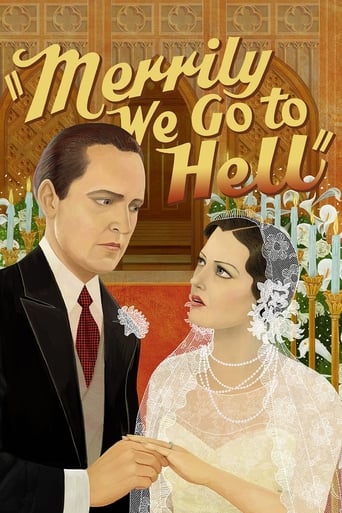

Director Dorothy Arzner was extremely popular with her stars because she always coddled them with close-up after close-up and ensured they were always fastidiously wardrobed and photographed to perfection, no matter how soap-suddy the screenplay. "Merrily We Go To Hell" (1932) serves as another typical example of her languid, star-indulgent style. Lovers of weepie-eyed Sylvia Sidney and sartorially splendid Fredric March will enjoy both the 9/10 VintageFilmBuff DVD and its 10/10 Universal rival. The only thing I really liked about this predictably plotted, slow- moving film was the unexpected appearance of perennial butler Charles Coleman as a gossip columnist with a well-founded dislike for our wastrel hero. But as for Cary Grant pouring on the charm in a small bit at a party scene, words fail me!
... View MoreFrederick March and Sylvia Sidney star in "Merrily We Go to Hell," from 1932.For those of us who only remember Sylvia Sidney as an older character actress -- and usually a pretty mouthy one at that -- seeing her as an ingénue is always a revelation.Jerry Corbett (March) is a reporter and a drunk, still pining for the woman who broke his heart, Claire (Adrienne Allen). When he meets the lovely Joan Prentice (Sidney) from a wealthy family, the two fall for one another and marry.Jerry wants to write plays, and he eventually is able to have one produced, early in the marriage. Unfortunately, one of the stars is Claire, and she's perfectly willing to take up where they left off. Jerry starts drinking again. Joan is heartbroken as well as hurt and starts drinking and partying herself. Finally, though, she returns to her father's home.Nothing too surprising in the plot, but good performances all around. Sidney is pretty and vulnerable, taking a chance on a man her father disapproves of but whom she loves. March shows that Jerry is a weak man who in his heart doesn't believe he deserves the happiness he's had with Joan. Can these two find their way back to one another? Just guess.Dorothy Arzner had a good sense of pacing, so the film doesn't drag or slow down. Worth seeing for the actors, not necessarily the story.
... View MoreFredric March and Sylvia Sidney star in Merrily We Go To Hell, the story of a nice rich girl who falls in love with an alcoholic newspaperman who has ambitions for greater things to turn his writing talents to. The title comes from a favorite drinking toast of March's.Occasionally Fredric March turned in some fine performances of some dissolute characters. Later on he would get Oscar nominations for A Star Is Born and Death Of A Salesman and his part in this film can be seen as a harbinger of things to come.For once Sylvia Sidney was not a child of the slums, she's a rich girl here who falls for March who keeps falling off the wagon. When he gets his play finally produced slinky actress Adrienne Allen comes between Sylvia and Fred. Incidentally playing a small role as Allen's lead in the play is Cary Grant.The story verges into the melodramatic, but Dorothy Arzner gets some good performances from her stars and their support. Pay note to March's reporter sidekick Skeets Gallagher who has some interesting observations.Fans of the stars should be pleased.
... View MoreAs I watched this film, I found myself struggling to believe the plot of "Merrily We Go To Hell"--but I also had to remind myself that there ARE indeed people who behave exactly like the leads did in this film. Yes, real people CAN be this dumb...and it's REAL dumb! Frederic March plays a reporter and frustrated playwright who spends most of his time intoxicated. He's not a mean drunk, but by anyone's standards he's clearly an alcoholic. So when rich and happy Sylvia Sidney meets and falls in love with this guy you wonder why--what in the world does this lush have to offer her?! But, having worked in a rehab program and in other mental health settings, I know that there are many such people who madly choose a hellish life like this--and hope that, magically, love will make the problem vanish.At first, March tries to be good and manages to get one of his plays produced. Life looks good for the young married couple--but the alcoholism is just lying dormant. When it does rear its ugly head later in the film, is their love enough to help them through it or does it spell disaster? And, more importantly, will the film makers manage to handle the addiction and co-dependence realistically and avoid the clichés? Well, the film makers decided to do it BOTH ways! While the alcoholism angle was generally played well (especially when the wife finally grew up and realized it was time to leave), by the end, March was suddenly and magically transformed--or so it seemed to me.Not a terrible film, just not a particularly inspired look at alcoholism and co-dependency. The only big plus this film has is a small early role for Cary Grant--who appears and then disappears almost as quickly.
... View More